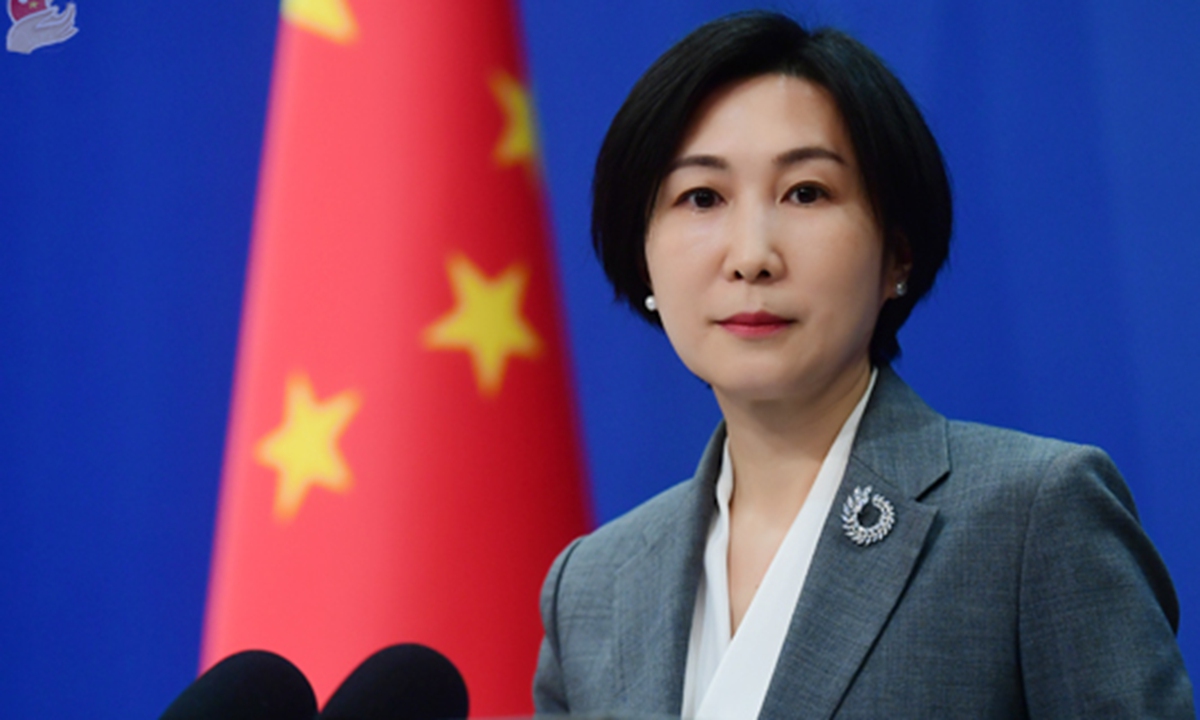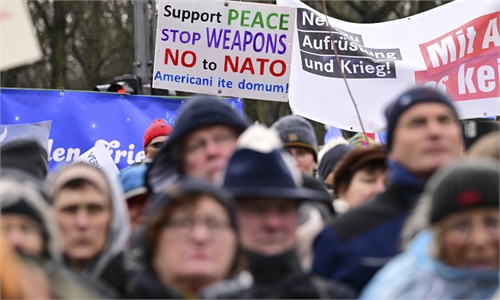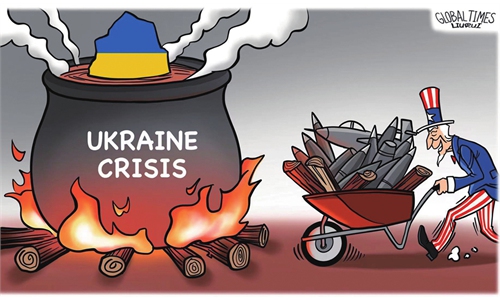US urged to stop spreading disinformation on China's 'military aid' to Russia; public opinion war 'exposes Washington's anxiety'

Chinese Foreign Ministry spokesperson Mao Ning
The Chinese Foreign Ministry on Monday urged the US to stop spreading disinformation on the so-called China's military backing for Russia, saying that China will not accept such coercion or pressure. In the latest round of public opinion offensives against China, the US, from senior officials to unnamed sources, hyped up China's mulling of sending weapons and ammunition to aid Russia, at a time when China has just outlined its peaceful and political settlement position in both its top diplomat's Europe trip and a position paper.
On Sunday, White House national security adviser Jack Sullivan told CNN's "State of the Union" that aiding Russia would be "a bad mistake" and the US will continue to send "a strong message" to China against "giving military aid to Moscow." In an interview with CBS News on Saturday, CIA Director Bill Burns expressed confidence that China "is considering the provision of lethal equipment" to Russia.
Both Sullivan and Burns admitted that there's no evidence of actual shipments of lethal equipment from China to Russia. However, the Biden administration on Friday added Chinese and Russian companies to a trade blacklist for allegedly "supporting the Russian military," according to Reuters.
Chinese Foreign Ministry spokesperson Mao Ning on Monday urged the US to stop spreading disinformation and withdraw the sanctions against the Chinese companies.
"On the Ukraine issue, China has been actively promoting peace talks and promoting the political settlement of the crisis. The US is in no position to point fingers at China-Russia relations. We do not accept coercion or pressure from the US," Mao said.
The US acts are typical unilateral sanctions, illegal "long-arm jurisdiction" and detrimental to Chinese interests, Mao said, "We will take resolute countermeasures in response to the US sanctions."
On February 24, the first anniversary of the Ukraine-Russia military conflict, US President Joe Biden told ABC News that he did not expect China to provide significant military aid to Russia, while unnamed sources "aware of the intelligence" said on the same day that Beijing was considering sending ammunition and small arms, according to Politico.
Shen Yi, an international relations expert from Fudan University, told the Global Times on Monday that fabricating and hyping "China's aid to Russia" illustrates how the US is in a bind over the Ukraine crisis one year after the military conflict began.
The US and NATO have done almost everything short of sending troops directly to the battlefield, but is still unable to tip the balance in its favor, Shen said, and that "tolerance for the spillover of the conflict in the US and Europe is also lower than expected."
The Pentagon on Friday announced a new package of assistance for Ukraine with a $2 billion commitment to send more rounds of ammunition and drones. With this latest package, the US has now committed more than $32 billion in assistance to Ukraine since the conflict started, according to the AP.
By hyping about China's mulling of sending "lethal weapons" to Russia, the US is actually coercing and pressing China to "prove its innocence" by standing on the US side to some extent, Shen said, "The US is also trying to deflect public anger at the year-long conflict from itself to China."
The US is also attempting to find a scapegoat for its possible failure in Ukraine, and to put the blame on China in advance, which is a very cheap political stigmatization, a Beijing-based expert told the Global Times on Monday on condition of anonymity.
"The launch of the public opinion war against China reflects the anxiety and hysteria of the US," the anonymous expert said.
Due to the conflict between policy stability and term limits, Washington's elites are probably feeling that their window of opportunity is shrinking significantly as the Russia-Ukraine conflict passes its first anniversary, the expert said.



